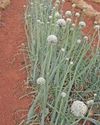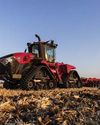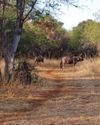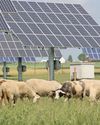
Theo Maqashalala has run purebred Nguni cattle on his farm Blackwood 2 in the Amathole District Municipality of the Eastern Cape since the early 1990s, and is still impressed with their no-nonsense production on the veld.
Five years ago, his decision to introduce Brahman bulls to a portion of his Nguni cows highlighted the latter breed’s value as a dam line for use in terminal crossbreeding programmes.
He says that, as a commercial beef farmer, introducing a terminal crossbreeding programme was the best production decision he’s ever made, adding: “Nothing beats an F1 Nguni-Brahman cross weaner.”
Maqashalala was born in 1937 near Kokstad, KwaZulu-Natal. His father, Meshack, was an Anglican priest who also dabbled in communal livestock farming.
In 1959, Maqashalala enrolled at the University of Fort Hare (UFH) in Alice, Eastern Cape, where he completed what was then a three-year advanced diploma in agriculture, followed by a bachelor of social science degree.
He eventually took up a position as a junior lecturer at UFH, went on to become a professor of social work, and retired from the university in 2000.
During his time at UFH, he became interested in the Faculty of Science & Agriculture, and was even involved in designing some of its course content. He simultaneously began toying with the idea of running a small herd of beef cattle, and in 1989 acquired a 341ha mixed-veld farm, Blackwood 2, in the Kat River Valley near Seymour, about 62km from Alice. He started with just 10 crossbred cattle, but was soon convinced of the value of Nguni genetics by members of UFH’s Faculty of Science & Agriculture.
This story is from the December 16, 2022 edition of Farmer's Weekly.
Start your 7-day Magzter GOLD free trial to access thousands of curated premium stories, and 9,000+ magazines and newspapers.
Already a subscriber ? Sign In
This story is from the December 16, 2022 edition of Farmer's Weekly.
Start your 7-day Magzter GOLD free trial to access thousands of curated premium stories, and 9,000+ magazines and newspapers.
Already a subscriber? Sign In

When short-term rentals make sense
Bianca Smit, national operations manager at CFAO Equipment SA, outlines factors to consider when choosing a rental equipment partner.

The timing of onion sowing is critical
Each onion variety has a different resistance to bolting, thus growers need experience and knowledge to guide them,

Understanding cannabis and hemp regulations in South Africa
South Africa's cannabis and hemp regulations remain a topic of debate and uncertainty, particularly when it comes to commercial use and small-scale production. Cannabis experts Shaad Vayej and Trenton Birch spoke to Octavia Avesca Spandiel about the challenges that small-scale cannabis and hemp farmers face.

European seed's influence on the US cannabis market
The expansion of European cannabis seed onto the US market is not just about economic growth; it’s also about enriching the landscape of US cannabis with diversity, innovation and education,

'It's important to get the right tool for the job'
The adoption of technology is crucial to sustaining efficiency gains and beating the cost-price squeeze in the agriculture sector.

A brilliant bushveld break between Bela-Bela and Modimolle
The distinctive touch, diligence, and 24/7 customer care are just a few of the reasons you should visit four-star Tourism Council-graded Pumula Game Farm,

John Deere: elevating performance and efficiency in modern farming
In the fast-paced world of farming, the right tools make all the difference.

The naval disaster Winston Churchill tried to hide
Three British warships were sunk by German naval gunfire on a dark day early in World War II, but the heroes who fought back received only muted recognition, possibly to avoid bad publicity,

Breaking down the principles of regenerative farming
Jean Hugo, a post-graduate student at the Tshwane University of Technology, and Leon Hugo, author on environmental matters and former professor of geography at the University of Pretoria, write about the importance of regenerative agriculture for small-scale farmers, and the challenges related to making the shift.

Ectoparasite control: more tips for livestock farmers
To reduce the mayhem that uncontrolled ectoparasites can create for communal farmers, it’s best to adopt a holistic approach in conjunction with veterinary remedies,